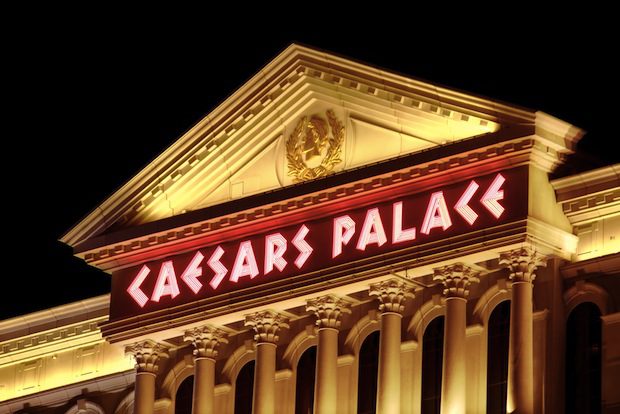Trump: The White House as Caesar’s Palace

Ben Boychuk writes in the comments:
Nice republic we had here. Pity we couldn’t keep it. And I say that — and have been saying it for quite some time — not because I think Trump is going to win or should win or has any hope of winning. Trump speaks to a genuine sentiment among Americans. People believe, correctly, that the current ruling class holds them in contempt. But Americans also want “Leadership,” which is just a more anodyne term for a Caesar.
Yes, I think Ben is onto something. The reader and commenter Deep South Populist openly and unapologetically longs for fascist government in the US. I remember a decade ago, being back in Louisiana on a visit, at a social event at which the TV news was on, and overhearing an older man saying that what we need in this country is a military coup. I thought he was kidding, and started listening more closely to him, but he wasn’t kidding at all. George W. Bush was the president, but the man was apparently sick of political fighting in Washington, and eager for a strong man to put things right.
Ben’s comment brings to mind Philip Giraldi’s TAC essay about “Deep State America”. Excerpt:
First of all, one should note that for the deep state to be effective, it must be intimately associated with the development or pre-existence of a national security state. There must also be a perception that the nation is in peril, justifying extraordinary measures undertaken by brave patriots to preserve life and property of the citizenry. Those measures are generically conservative in nature, intended to protect the status quo with the implication that change is dangerous.
Those requirements certainly prevail in post 9/11 America, and also feed the other essential component of the deep state: that the intervening should work secretly or at least under the radar. Consider for a moment how Washington operates. There is gridlock in Congress and the legislature opposes nearly everything that the White House supports. Nevertheless, certain things happen seemingly without any discussion: Banks are bailed out and corporate interests are protected by law. Huge multi-year defense contracts are approved. Citizens are assassinated by drones, the public is routinely surveilled, people are imprisoned without be charged, military action against “rogue” regimes is authorized, and whistleblowers are punished with prison. The war crimes committed by U.S. troops and contractors on far-flung battlefields, as well as torture and rendition, are rarely investigated and punishment of any kind is rare. America, the warlike predatory capitalist, might be considered a virtual definition of deep state.
One critic describes deep state as driven by the “Washington Consensus,” a subset of the “American exceptionalism” meme. It is plausible to consider it a post-World War II creation, the end result of the “military industrial complex” that Dwight Eisenhower warned about, but some believe its infrastructure was actually put in place through the passage of the Federal Reserve Act prior to the First World War. Several years after signing the bill, Woodrow Wilson reportedly lamented, “We have come to be one of the worst ruled, one of the most completely controlled and dominated governments in the civilized world, no longer a government by conviction and the vote of the majority, but a government by the opinion and duress of a small group of dominant men.”
In truth America’s deep state is, not unlike Turkey’s, a hybrid creature that operates along a New York to Washington axis. Where the Turks engage in criminal activity to fund themselves, the Washington elite instead turns to banksters, lobbyists, and defense contractors, operating much more in the open and, ostensibly, legally. U.S.-style deep state includes all the obvious parties, both public and private, who benefit from the status quo: including key players in the police and intelligence agencies, the military, the treasury and justice departments, and the judiciary. It is structured to materially reward those who play along with the charade, and the glue to accomplish that ultimately comes from Wall Street. “Financial services” might well be considered the epicenter of the entire process. Even though government is needed to implement desired policies, the banksters comprise the truly essential element, capable of providing genuine rewards for compliance. As corporate interests increasingly own the media, little dissent comes from the Fourth Estate as the process plays out, while many of the proliferating Washington think tanks that provide deep state “intellectual” credibility are similarly funded by defense contractors.
Does a longing for a Caesar come from a frustration with normal politics, which seem to serve the Deep State? Does it come from a sense that the game is fixed for the wealthy and well-connected, and only a Caesar can smash those networks and rule justly? Boychuk is right, I think, about the ruling classes (meaning the political class, the media class, the academic class, the business class) and their contempt, but any conceivable “cure” for this sickness would be far worse, in my view.
For Americans who would like Trump to take over and be that Strong Man, I would ask how well it worked out for Italy to have Silvio Berlusconi, a billionaire with a colorful private life, run that country. He took advantage of the squabbling among the traditional parties (to say nothing of his power as a Murdoch figure in Italy’s media) to win election. If Trump turned the White House into Caesar’s Palace, maybe we too can have our first-ever Bunga Bunga presidency.
Trump is going to flame out, but as Boychuk avers, what Trump appeals to is not. When someone who is not a ridiculous pop culture figure comes along and figures out how to harness it, the country will be in a very different place. Forget Trump; what waits in the wings is an American Putin.
Subscribe for as little as $5/mo to start commenting on Rod’s blog.